Marchés
Lors de la conception d’une intervention humanitaire et de la prise de décisions quant à l’utilisation des transferts monétaires, l’analyse générale des options de réponse doit inclure une analyse de marché. Il est prouvé qu’offrir un soutien ciblant le fonctionnement des marchés accélère la reprise et accroît la résilience dans les zones affectées par une catastrophe.
De nombreuses organisations ont investi dans la mise au point d’outils visant à faciliter l’analyse de marché et réfléchissent à la mise en place de programmes basés sur les marchés plus holistiques. Elles envisagent des interventions tirant profit du marché (basées notamment sur des transferts monétaires aux populations affectées), ainsi que des interventions soutenant directement les marchés (comme l’octroi de subventions conditionnelles aux vendeurs/euses pour la remise en condition du marché).
Initiatives associées
Contenu associé

1.2 Introduction à l’analyse de marché
Cours
Ce cours de 30 minutes offre une introduction à l’analyse de marché pour les contextes d’urgence. Il contient des contributions d'experts dans ce domaine. Ce cours a été développé en collaboration avec l'International Rescue Committee et le CALP Network et grâce au financement d’USAID/OFDA et de l’Agence Suisse pour le Développement et la Coopération. Il est destiné aux...

2.4 Un guide pratique pour l’analyse de marché
Cours
Ce cours en ligne de 3.5 heures vise à fournir aux équipes qui conduiront des analyses de marchés en contextes humanitaires une compréhension approfondie de la théorie et des étapes à suivre afin de leur permettre de comprendre le pourquoi et le comment du processus à suivre. Les participants seront guides à travers un scenario d'analyse de marchés d'urgence. Ce cours s'appuie sur...
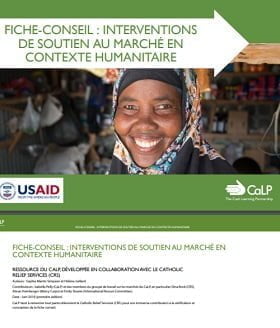
Fiche-Conseil : Interventions de soutien au marché en contexte humanitaire
Guides et outils
La fiche conseil définit le programme de soutien au marché en contexte humanitaire et le décrit dans la pratique. Elle permet aux praticiens humanitaires d’envisager systématiquement des interventions de soutien au marché, parallèlement à d’autres activités du programme. Le champ d’application comprend des interventions de soutien au marché axées sur l’offre/la disponibilité...
Thematic lead
Latest
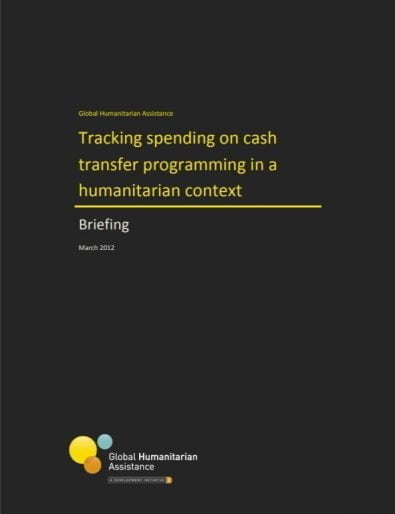
Tracking Spending on Cash Transfer Programming in a Humanitarian Context
Report
This briefing paper provides a brief overview of cash transfers by situating them within official development assistance (ODA) analysis. However, the core of this analysis concentrates on tracking cash transfer programme spending in humanitarian aid. For analysis of cash transfer spending in crisis...
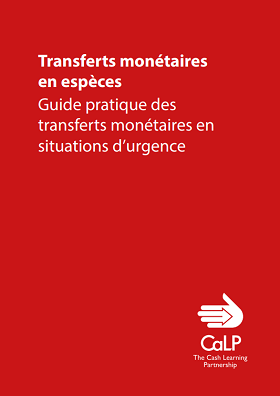
Transferts monétaires en espèces: Guide pratique des transferts monétaires en situations d’urgence
Guides et outils
Ce mini-guide présente quelques informations pratiques sur les transferts monétaires en espèces dans les situations d’urgence. Le guide comprend les informations suivantes: – Conditions préalables – Description de la méthode de paiement – Avantages et inconvénients – Conseils pratiques –...

Mobile Technology in Emergencies
Policy paper
Mobile phones are increasingly accessible to those affected by crisis and can play a strategic role in the delivery of rapid, cost-effective, scalable humanitarian assistance. However, the full potential of mobile phones to work as transformative tools in emergency response has not yet been realised. This...

Kenya: Cash grants to support post-election violence livelihood recovery
Case Study
In response to post-election violence starting in late December 2007, ACF implemented a cash-based intervention in Nakuru, South Rift Valley, Kenya. This programme supported the local displaced and host population, who had been excluded from aid provided to internally displaced persons (IDPs) living in...
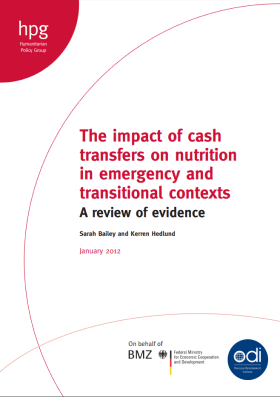
The Impact of Cash Transfers on Nutrition in Emergency and Transitional Contexts – Review of evidence
Report
This ODI / HPG commissioned report reviews the evidence of the impact of cash transfers on nutrition in emergency and transitional contexts. The research finds that evidence from humanitarian evaluations makes a strong case that cash transfers often improve dietary intake. There is less evidence that cash...
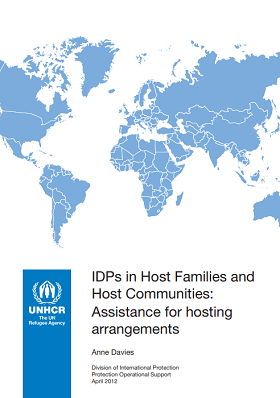
IDPs in Host Families and Host Communities: Assistance for Hosting Arrangements
Report
The phenomenon of internally displaced persons (IDPs) and refugees residing with host families is still relatively unexplored in comparison to what is known about IDPs and refugees living in camps. Of the nearly 14.7 million IDPs protected and assisted by UNHCR in 2010, an estimated 52% of the total live...
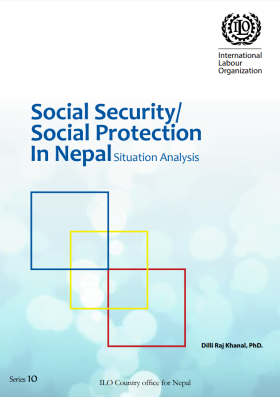
Social Security/Social Protection In Nepal: Situation analysis
Report
The International Labour Conference has outlined several strategies to extend social security by closing coverage gaps and pointed out that effective national strategies should be formed in line with national priorities, administrative feasibility and affordability. The primary goal is to ensure that no...

New Technologies in Cash Transfer Programming and Humanitarian Assistance – Executive Summary
Report
This is the executive summary of the CALP Network’s research on new technologies in cash transfer programming and humanitarian assistance. For more, please see the full report.

Child Safeguarding in Cash Transfer Programming
Guidelines and Tools
While cash transfers have become a key intervention in emergencies, they also pose increased and additional risks for beneficiaries, compared with other forms of assistance. Children are particularly vulnerable, and even more so in emergencies. The impact of cash transfer programming on children’s...
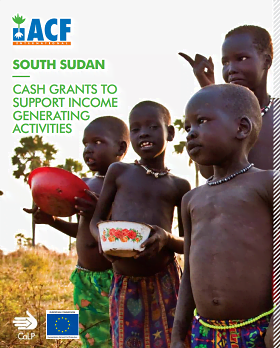
South Sudan: Cash grants to support income generating activities
Case Study
In response to chronic malnutrition, ACF implemented a cash-based intervention in Twic and Gogrial West Counties of Warrap State, South Sudan, using group cash grants to promote income generating activities. The programme addressed chronic livelihood vulnerability, which is a contributing factor to global...

Logistics and Administration Guideline for Cash Based Interventions
Guidelines and Tools
Cash-based interventions (CBIs) are increasingly included in humanitarian relief efforts as alternatives or complements to in-kind assistance. This guideline is mainly dedicated to logisticians and administrators to successfully support CBIs but also to technical departments. The objectives of this...
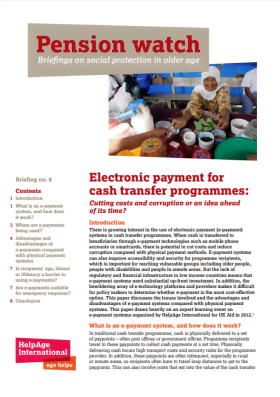
Pension Watch Briefing #8: Electronic payment for cash transfer programmes
Policy paper
There is growing interest in the use of electronic payment (e-payment) systems in cash transfer programmes. When cash is transferred to beneficiaries through e-payment technologies such as mobile phone accounts or smartcards, there is potential to cut costs and reduce corruption compared with physical...
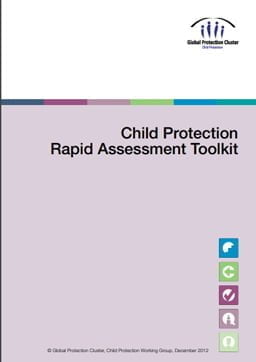
Child Protection Rapid Assessment Toolkit
Guidelines and Tools
The CPRA Toolkit provides all the information you need to conduct a CPRA over a five-week timeframe. The toolkit is divided into three parts: Part 1: a guide to CPRA provides an action plan with 6 key phases, giving guidance for tasks in each phase. Part 2: sample tools provides five key tools for...

Mobile Money Transfer: A study on effectiveness and efficacy!
Report
For this study both structured and semi-structured questioning method were used. Few KII (in depth interview) along with a pre-designed questionnaire were used for understanding the benefits and challenges of this new method on different stakeholders.
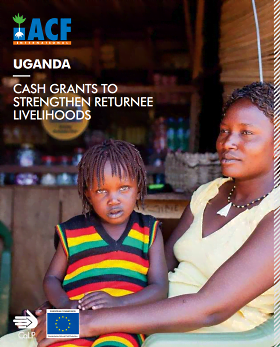
Uganda: Cash grants to strengthen returnee livelihoods
Case Study
In support of the return and recovery effort of formerly war affected populations, ACF implemented a cash-based intervention in Otuke District of Northern Uganda. This programme assisted internally displaced persons (IDPs) with the return home and re-establishing their livelihoods. Vulnerable households...

Comparative Review of Market Assessments Methods, Tools, Approaches and Findings – SWOT Analysis
Guidelines and Tools
This document makes a comparative review of different market assessments methods,tools, approaches and findings. A swot analysis of the Emergency Market Mapping Analysis (EMMA), Market Information and Food Insecurity Response Analysis (MIFIRA) and World Food Programme Trader Survey (WFP TS) is...

Child Safeguarding in Cash Transfer Programming Tool
Guidelines and Tools
It is important to recognise that Cash Transfers present increased and specific risks for beneficiaries versus other forms of emergency assistance. Given children’s greater vulnerability, the impact of CTP on their wellbeing must be considered at all stages of the project cycle. This tool provides...

Cash Transfers in Nairobi’s Slums
Report
In Kenya, a combination of factors led to the food crisis of 2008–9, which put around 9.5 million people at risk of starvation. About 4.1 million of those affected were living in informal settlements (slums) in the capital, Nairobi. Oxfam and Concern Worldwide developed a joint programme to address...

Market Information and Food Insecurity Response Analysis (MIFIRA) Framework Course
Guidelines and Tools
Access Course Here This course outlines the rationale for “response analysis” and introduces a field-tested, systematic approach to this emergent activity. The Market Information and Food Insecurity Response Analysis (MIFIRA) framework provides a logically sequenced set of questions that help...

Étude comparative des mécanismes de coordination des programmes monétaires en situation d’urgence
Rapport
Principalement basée sur trois études de cas (Pakistan, Haïti, et la Corne de l’Afrique), cette étude comparative a pour objectif de tirer les leçons pour une meilleure coordination des programmes de transfert d’argent (CTP) lors des urgences à venir et d’aider à construire une stratégie de...
